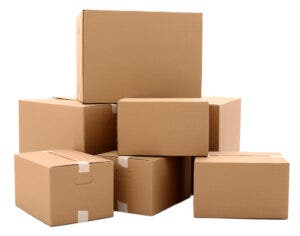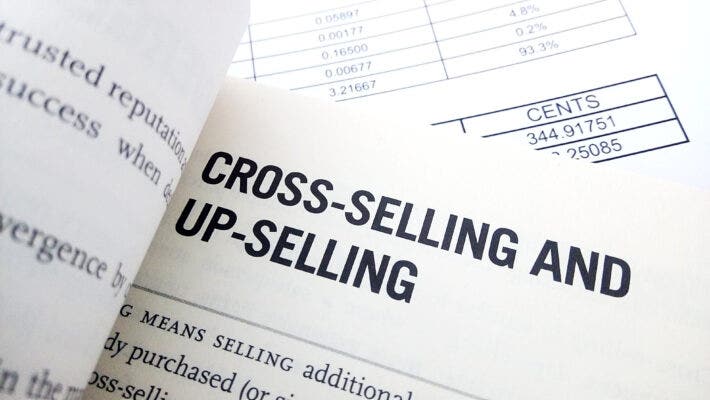Mastering the Fine Art of the Upsell and Cross Sell
Years ago, I encountered a car salesman when a friend was looking to replace her aging vehicle. She was interested in getting a reasonably priced compact sedan, but the car dealer? He tried desperately to upsell her into a pointlessly huge SUV that would cost her nearly twice as much while fulfilling none of her needs for a vehicle.
My friend was so turned off by that ordeal that she ended up shopping with a local competitor. And that second dealer provided a textbook example of a good upsell, one that helped not only his company, but his newest customer as well.
The second car dealer listened to my friend and calculated her needs. He found out what she liked and disliked about her then-current ride. He took her finances into serious consideration and only presented options she could reasonably afford.
In the end, he sold her a car that was slightly more expensive than what she had planned on getting. But the car she ended up with was vastly superior to what she thought she needed. It was safer, more spacious, handled better … it was frankly a better car all around. And she invested in an extended warranty, too.
All of that? That was good upselling. He convinced her to buy a better car at a price that was still reasonable. He successfully explained to her why she should buy an extended warranty that included huge discounts on a variety of services, too. His company turned a bigger profit, and his customer ended up with a better vehicle as well. It was a genuine win-win for both of them.
A Cross Sell vs. an Upsell
That story perfectly defines an upsell: convincing a customer to get something better than they initially planned to get. But the proper upselling definition is slightly broader, too. It can also include enhancing a purchase with something that’s directly useful to that product.

So what is cross selling then? Cross selling involves convincing a customer to buy something that fulfills a need adjacent to their primary purchase. It may not be related to the main product directly, or even at all, but it’s related in some way to how that product is used.
Here’s the example used in defining a cross sell versus an upsell you’d hear in a marketing class in college. Remember when fast food joints used to offer extra large meal options? They’d ask if you’d like to “super size” your meal. That’s an upsell; convincing you to spend more to get more. Asking if you’d like fries, a drink, or a desert item? Those are examples of cross selling.
Let’s put that into the context of a rental business like yours. An upsell would consist of convincing your customer to rent a larger party tent than they planned to get. Meanwhile, cross selling would see them renting tent sidewalls, folding tables, or folding chairs. They’re supplementary items that enhance the overall value (and the total cost) of their rental.
Unethical Upselling and Cross Selling
Unfortunately, a lot of salespeople believe that upselling and cross selling should involve convincing a customer to spend more money, regardless of that customer’s needs. Their customer may only have living room space for a 46” television, but the salesperson pushes a massive 70” model instead, just to get the bigger sale. Or an electronics store demands its employees try to sell batteries to every single customer who walks through the door, regardless of what that customer wants or needs.
These sorts of upselling and cross selling techniques are, simply put, wrong. They’re unethical and slimy. And while you may turn more short term profit from such a sale, you end up losing a potential long-term customer, who isn’t going to want to work with your rental business again once they see you’ve convinced them to spend more on things they didn’t need or couldn’t use.
A good upsell or cross sell should benefit not just your rental business, but your customers as well. It should provide them with genuine value and improve their events and parties in a meaningful, impactful way.
Can you convince a family to rent a margarita machine for their daughter’s ninth birthday? Some of you reading this might be able to pull that off. But should you? What value does that add to the birthday party? It’s the daughter’s special day … what good is that to her? Is that something she’d want at her party?
Upselling and Cross Selling for a Rental Business, 101
Thankfully, the rental industry presents us with lots of great upselling and cross selling opportunities that are profitable without needing to stoop to those uglier, grimier upselling techniques. Ours is an industry of fun, and fun is something customers can’t really get too much of.
Here are some examples of good upselling and cross selling options for those of you renting out party tents:
And now, let’s talk about some upselling and cross selling options for inflatables like bounce houses, inflatable water slides, and inflatable obstacle courses:
The needs of your customers and their event or party guests should determine what and how you upsell. You need to consider a number of factors before attempting an upsell or cross sell, including:
- The customer’s actual desires (versus what you’re hoping their desires are)
- The type of event or party being held
- The customer’s budget
- What the customer expects to get out of that budget, within reason of course
- The customer’s overall and specific goals for the event
- The location of the event and the resources available at that location
- The number of expected guests, and the ages of those guests
As a general rule, it’s always good to approach a potential sale thinking about how you’d feel if you were that customer. Would your sales pitch draw you in, or push you away? How would you feel if someone tried to upsell or cross sell you with those same items, in the same ways, and for the same reasons?
Upselling Ahead of Time with Packages and Bundles
Perhaps the easiest method of upselling and cross selling is that of developing packages and bundles customers can choose for themselves. Your customers can essentially upsell and cross sell themselves, finding deals that save them money and hassle while educating them on what products work best together.

We all understand the concept of packages and bundles. We see them on offer from any number of companies, in just about every industry there is, too. Cable companies bundle TV channels, Internet, and phone services. Restaurants create meal deals. Hotels offer packages including rooms, spas, and room service.
Packages and bundles are everywhere, and for good reason: they’re arguably the easiest way to handle upselling and cross selling, and they present your customers with ever-valuable choice.
Traditionally, your packages and bundles should include relevant items that belong together, with discounts that add value to those purchases. Your customer is buying more, but they’re saving money and eliminating the guesswork of trying to figure out what products they need.
Here’s an example your rental business might offer: a “Winter Party Package” that includes a 20x20 party tent, a tent heater, tent sidewalls, 6 folding tables, and 30 folding chairs. Your customers hosting events in the winter can make good use of everything in this package.
Related: How to Heat a Party Tent in Winter: Here’s What You Need
[product ids="4208,3118,2139,2595"]
There are a few prevailing rules of thought for how to price your packages and bundles. Most will add up the total, regular costs of all the bundled items and then discount that total by 5 percent to 15 percent. Others will markdown the individual items, typically by a lower percentage (1 percent to 5 percent) and then add up those marked down prices.
Knowing How to Upsell can Help Customers AND Your Rental Business
Upselling and cross selling aren’t all about turning bigger profits or landing bigger sales. Some individuals and companies do sadly see these concepts as vessels for immediate profitability, but that greed and shortsightedness will almost always cost them dearly over time.
In the end, try to remember that the golden rule is as applicable in business as it is in life. Always treat your customers the way you yourself would like to be treated.
You’re a business. You’re meant to turn a profit, and that’s okay. You should always price your business competitively, without undervaluing your products or yourself. And your upselling and cross selling strategies should ultimately reflect that. But as we’ve discussed already, there’s a good way and a bad way to upsell and cross sell. And the bad way will almost always invariably result in the permanent loss of customers.
Listen to your customers. Understand and appreciate their needs as best you can. Develop packages and bundles that make sense. Upsell customers when it benefits them, and deploy cross selling to supplement a customer’s rental within the confines of their budget. And if you’re going about upselling and cross selling your customers the right way, it’s not just your customers who benefit. Your profit margins are going to thank you, too.



